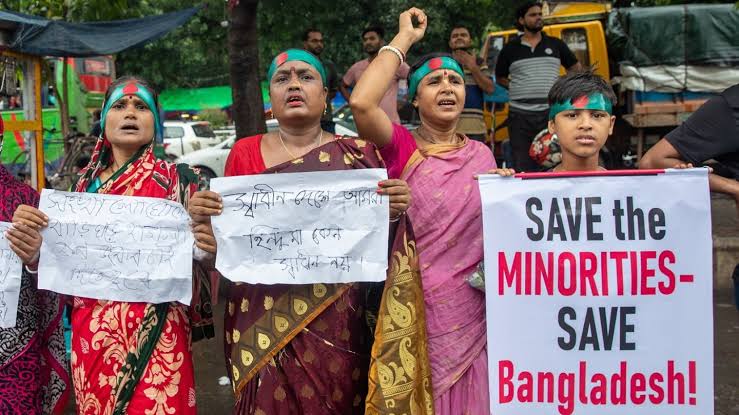Cryptocurrency is a digital or virtual currency
A cryptocurrency is a digital or virtual currency that is secured by cryptography, which makes it nearly impossible to counterfeit or double-spend. Many cryptocurrencies are decentralized networks based on blockchain technology a distributed ledger enforced by a disparate network of computers. A defining feature of cryptocurrencies is that they are generally not issued by any central authority, rendering them theoretically immune to government interference or manipulation.
What is Cryptocurrency is a digital or virtual currency
A cryptocurrency is a type of digital asset that is based on a network that is distributed across many computers. Cryptocurrency disadvantages include price volatility, high energy consumption for mining activities, and use in criminal activities. Because of their decentralized structure, they can exist independently of governments and central authorities. Cryptocurrencies are not widely accepted as money, owing to their lack of legal tender status. El Salvador, on the other hand, became the first country in the world to accept bitcoin as legal tender in June 2021. The benefits of cryptocurrencies include cheaper and faster money transfers. As well as decentralized systems that do not fail at a single point. Blockchain and related technology, according to experts, will disrupt many industries, including finance and law.
Transformation of cryptocurrency :
The subprime mortgage crisis and recession in 2008-2009 resulted in Quantitative Easing (the introduction of new money into the money supply by a central bank) of the dollar in the United States. Later, which increased dollar supply and eroded dollar purchasing power.
Banks charge fees for online transfers, credit card transactions, and ATM withdrawals. From the creation of Bitcoin in 2009 to the present day, cryptocurrencies have grown in popularity all over the world. Bitcoin, the first decentralized cryptocurrency, was created in 2009 by a presumably anonymous developer named Satoshi Nakamoto. The gains made by this sector since the onset of the Covid-19 pandemic in January 2020 have been astounding; the “crypto market” has grown by more than 500%.
The concept of cryptocurrency is a digital or virtual currency:
Cryptocurrencies are digital or virtual currencies that rely on cryptographic systems to function. They make it possible to make secure online payments without the use of third-party intermediaries. The term “crypto” refers to encryption algorithms. And cryptographic techniques are used to protect these entries, such as elliptical curve encryption, public-private key pairs, and hashing functions. Cryptocurrencies can be mined or bought on cryptocurrency exchanges. They are also used for cross-border transfers to a limited extent.

Classification of Cryptocurrency
Bitcoin is still the most traded and covered cryptocurrency. Many other cryptocurrencies, known as “altcoins,” have been launched in the aftermath of Bitcoin’s success. Some of the well-known altcoins are:
- Solana
- Litecoin
- Ethereum
- Cardano
- Peercoin
- Namecoin
By November 2021, the total value of all cryptocurrencies in existence had surpassed $2.1 trillion, with Bitcoin accounting for approximately 41% of the total value.
Bitcoin
Bitcoins can be digitally sent to anyone with a bitcoin address anywhere in the world. One person may have multiple addresses for various purposes such as personal, business, and so on. It is an electronic or digital currency that operates on a peer-to-peer basis. It is decentralized, with no centralized authority in charge.
Satoshi Nakamoto proposed bitcoin, a mathematically-proofed electronic payment system. It is the first example of a new type of currency known as cryptocurrency. A bitcoin is not a printed currency, but rather a non-reputable (assurance that no one can deny the legitimacy of something) record of every transaction that it has been through. All of this is part of a massive ledger known as the blockchain. Since no authority controls or tracks the generation of the coins, the system is designed in such a way that the network keeps a foolproof record of every transaction as well as tracks the issuance of the currency sent without either side knowing the identity of the other Bitcoins is ‘mined’ using computing power in a distributed network.
Cryptocurrency in India
The RBI issued a circular in 2018 prohibiting all banks from dealing in cryptocurrencies. In May 2020, the Supreme Court ruled that this circular was unconstitutional. The government recently announced the introduction of a bill, Cryptocurrency, and Regulation of Official Digital Currency Bill, 2021, to create a sovereign digital currency while simultaneously prohibiting all private cryptocurrencies. The current cryptocurrency approach makes it nearly impossible for blockchain entrepreneurs and investors to gain significant economic benefits.
However, “it allows for certain exceptions to promote the underlying technology of cryptocurrency and its uses,” the document reads.
India has levied a 30 percent tax on crypto investors and a 1 percent TDS on every crypto intra-traders. Currently, India has not regulated cryptos but won’t legalize it as well.
The country is “fairly ready” with its consultation paper on cryptocurrencies and has consulted domestic as well as institutional stakeholders including the World Bank and the International Monetary Fund, said Economic Affairs Secretary Ajay Seth.
Legality of Cryptocurrency
- Cryptocurrencies are not backed by any government or private organization. As a result, making a case for their legal status in various financial jurisdictions around the world has been difficult.
- It doesn’t help that cryptocurrency has mostly operated outside of most existing financial infrastructure.
- Cryptocurrency’s legal status has implications for its use in daily transactions and trading.
- The Financial Action Task Force (FATF) recommended in June 2019 that cryptocurrency wire transfers be subject to the requirements of the Travel Rule, which requires AML compliance.
- El Salvador is the only country in the world to accept Bitcoin as legal tender for monetary transactions as of December 2021.
- Moreover, The Payment Services Act of Japan declares Bitcoin to be legal property.
Cryptocurrency – Significance
- Cryptocurrencies represent a new, decentralized money paradigm.
- Centralized intermediaries, such as banks and monetary institutions, are not required in this system to enforce trust and police transactions between two parties.
- Cryptocurrencies promise to make it easier to transfer funds between two parties without the need for a trusted third party such as a bank or credit card company.
- Cryptocurrency transfers between two transacting parties are faster than traditional money transfers because they do not use third-party intermediaries.
- Profits can be made from cryptocurrency investments. The value of cryptocurrency markets has skyrocketed.
- It is a less expensive option when compared to other online transactions.
- The transfer of funds is completed with minimal processing fees.

Crypto regulation: Here we list all the top countries that made cryptos legal, illegal or unregulated (with some restrictions).
The United States
- Cryptocurrencies are legal in the US. According to the U.S. Department of Treasury’s Financial Crimes Enforcement Network (FinCEN), Bitcoin is a convertible currency with an equivalent value to real currency or one that can act as a substitute for real currency. The Internal Revenue Service has also categorized Bitcoin as property for taxation purposes.
Turkey
- In April 2021, the Central Bank of the Republic of Turkey issued a regulation banning the use of cryptocurrencies in every form— directly or indirectly.
Russia
- In January 2022, Russia’s central bank proposed banning the use and mining of cryptocurrencies on Russian territory, citing threats to financial stability, citizens’ well-being, and its monetary policy sovereignty.
- The move is the latest in a global cryptocurrency crackdown as governments from Asia to the United States worry that privately operated and highly volatile digital currencies could undermine their control of financial and monetary systems.
- Russia has argued for years against cryptocurrencies, saying they could be used in money laundering or to finance terrorism. However, Russia’s leaders are using cryptocurrency to bypass the sanctions imposed by the US and its allies after Russia’s invasion of Ukraine, said Blockchain analytics firm Elliptic. The research firm has tracked down a Russian crypto wallet that has ‘significant asset holdings’.
European Union
- The European Union has not made the usage of cryptos legal or illegal. It recognizes bitcoin and other digital assets as ‘crypto-assets’.
- Meanwhile, European Union (EU) lawmakers are tightening rules on cryptocurrency transfer, in view of the rising use of crypto-assets for money laundering. According to Reuters, the new proposal will make it mandatory for cryptocurrency companies such as exchanges operating across the EU to obtain, hold, and submit information on any of their users involved in any transfers.
China
- China’s central bank in September 2021, made all cryptocurrency-related transactions illegal and put a blanket ban, sending the strongest signal yet of its determination to crack down on the industry.
- All cryptocurrencies, including Bitcoin and Tether, are not fiat currency and cannot be circulated on the market, the People’s Bank of China said on its website. Therefore, “All crypto-related transactions, including services provided by offshore exchanges to domestic residents, are illicit financial activities, “the PBOC said in the statement.
Algeria
- In 2018, Algeria passed a financial law—making all crypto transactions illegal. This includes holding and trading any digital assets. Any violation of the law is subjected to an offense and is punishable.
Cryptocurrency – Limitations
- Cryptocurrencies, while claiming to be an anonymous form of transaction, are actually pseudonymous. They leave a digital trail that agencies can decipher.
- Cryptocurrencies have grown in popularity among criminals as a tool for nefarious activities such as money laundering and illegal purchases.
- Cryptocurrencies have also become popular among hackers, who use them to carry out ransomware attacks.
- In theory, cryptocurrencies are supposed to be decentralized, with their wealth distributed among many parties via a blockchain. In practice, ownership is extremely concentrated.
- One of the conceits of cryptocurrencies is that anyone with a computer and an internet connection can mine them.
- Mining popular cryptocurrencies, on the other hand, necessitates a significant amount of energy, sometimes equivalent to that consumed by entire countries.
- While cryptocurrency blockchains are extremely secure, other crypto repositories, such as exchanges and wallets, are vulnerable to hacking.
- Price volatility affects cryptocurrencies traded on public markets. Bitcoin’s value has gone through rapid ups and downs.
- Some economists believe that cryptocurrencies are a passing fad or speculative bubble.
MIES RM LAW COLLEGE
A privilege to introduce a write-up from one of the top law colleges for the LL.B degree course, MIES R M Law College, Kolkata, one of the best law colleges in Bengal. An article on “Cryptocurrency is a digital or virtual currency” was written by Ms. Mahejabin Khatun. A faculty member of this excellent law college, Ms.Mahejabin Khatun has been associated with MIES R M Law College since 2019. MIES R M Law College is one of the best law schools in West Bengal, situated at Sonarpur, South Kolkata. They had completed many years with its glorious journey in the field of law education.
MIES R M Law College (Under the MIES R M Foundation Trust) has a highly qualified and competent team of faculty, enormous world-class infrastructure, and facilities most conducive to academic pursuit, along with its remarkably successful campus placements and student-friendly environment. MIES RM Law College is one of the best legal education providers in India under Vidyasagar University, West Bengal, and is approved by the State Government as well as the Bar Council of India.
We assure you that you are stepping into the right place as we are one of the Law colleges in South Kolkata which provides legal help to the downtrodden people of society and we also take extra care of our academically poor students.





Hey there! Someone in my Facebook group shared this site with us so I came to look it over. I’m definitely enjoying the information. I’m book-marking and will be tweeting this to my followers! Outstanding blog and amazing style and design.